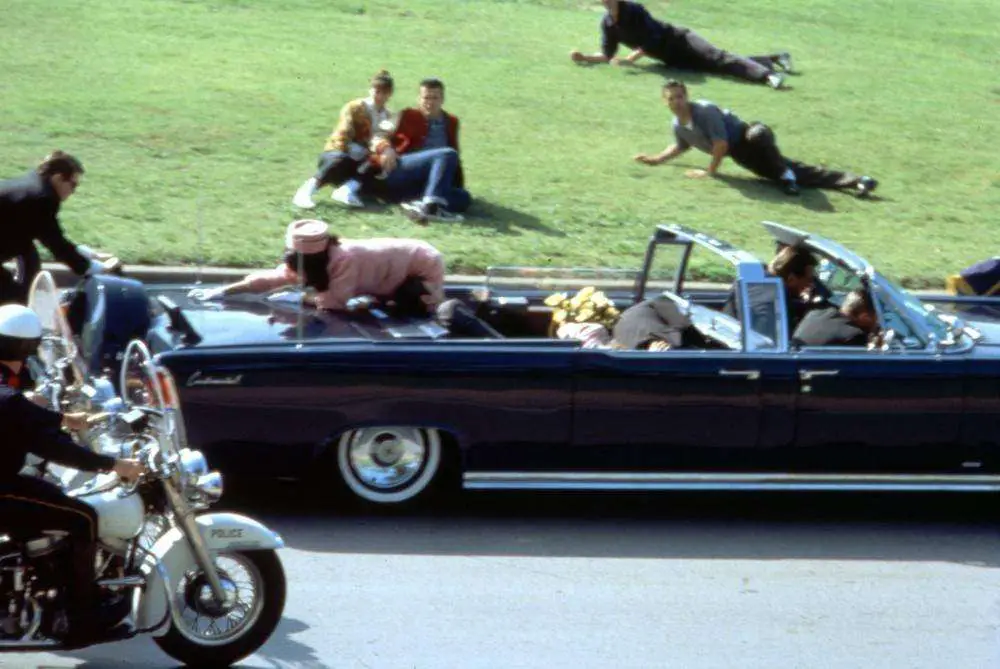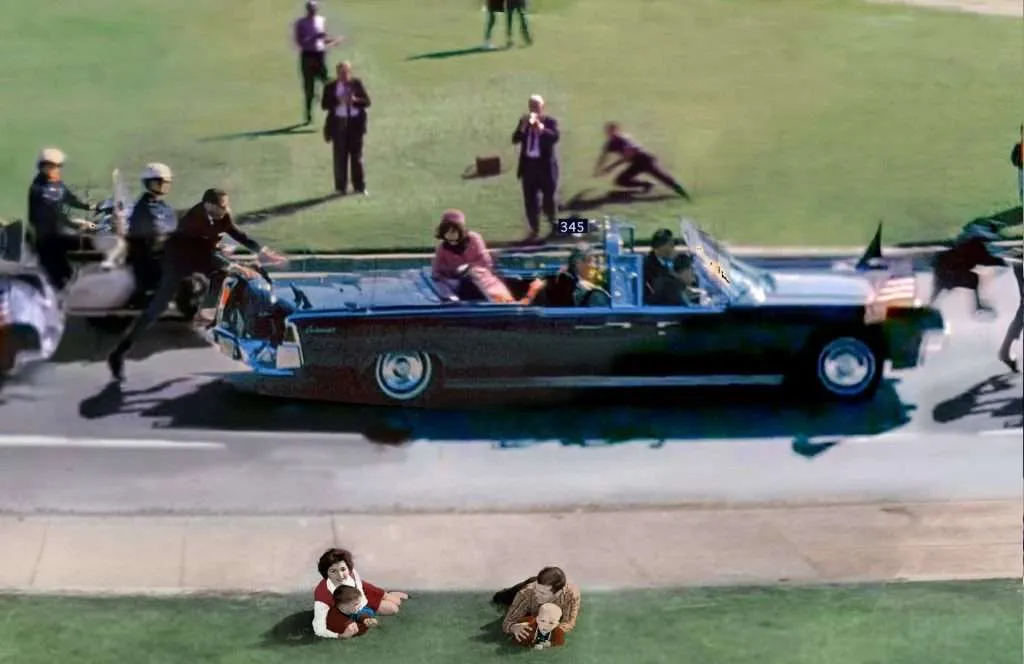Table of Contents
Explore the enduring mysteries of JFK assassination and the intriguing web of conspiracy theories surrounding this historic event. Dive into the complex legacy of November 22, 1963, and the ongoing quest for answers in American history.
JFK Assassination : A Day that Shook America

November 22, 1963, is a day etched in the annals of American history. On that fateful day in Dallas, Texas, President John F. Kennedy Jr. was assassinated, sending shockwaves across the nation and the world. The accused assassin, Lee Harvey Oswald, was swiftly arrested. However, the tragedy didn’t end there.
Just two days later, while being transported to a local jail, Oswald was shot and killed by Jack Ruby, a Texas nightclub owner. These shocking events, marked by the assassination of a beloved president and the killing of his alleged assassin, have been ripe ground for conspiracy theories since their inception.
The Seeds of Suspicion
From the moment the tragic shots rang out in Dallas, suspicion and skepticism began to take root. The circumstances surrounding the assassination were deeply unsettling: a handsome and popular president had been fatally shot in broad daylight, and his accused assassin was silenced days later. It was a perfect storm for conspiracy theories.
By the late 1960s, a mere few years after the events in Dallas, more than 50% of Americans began to doubt that Oswald had acted alone. As recently as 2017, FiveThirtyEight reported that a staggering 61% of Americans believed that JFK’s assassination involved some form of conspiracy.
JFK Assassination: The CIA Connection
Among the multitude of JFK conspiracy theories, one has stood out as particularly compelling: the idea that the Central Intelligence Agency (CIA) played a sinister role in the assassination. According to this theory, the CIA orchestrated JFK’s murder in retaliation for the failed Bay of Pigs invasion—an ill-fated attempt to overthrow Cuban leader Fidel Castro.
This notion gained some credence from the thoughts of Robert F. Kennedy, JFK’s brother and the Attorney General of the United States at the time. Initially, Bobby Kennedy suspected that a group of rogue CIA agents might have been involved in his brother’s death, though he later reevaluated this perspective.
The Second Gunman Theory

Another prominent JFK conspiracy theory suggests that Oswald was not the lone gunman on that tragic day. This belief gained momentum when the House of Representatives Select Committee on Assassinations concluded that there was “probably” a conspiracy involving a second shooter. However, it’s essential to note that in 1982, another committee cast doubt on these findings. Nevertheless, the idea of a second gunman had already taken root in the collective consciousness.
The Mafia’s Vendetta
A third theory paints the assassination as a mob-orchestrated hit meant to exact revenge on Robert F. Kennedy for his relentless pursuit of organized crime. In this scenario, JFK’s death served as a brutal message to his brother, who was known for cracking down on the mafia’s criminal activities. The intricate web of connections between the Kennedy family, the CIA, and organized crime lent credence to this theory.
The Curious Tales and Ted Cruz’s Father
Conspiracy theories often take unexpected turns, and some delve into truly bizarre territory. One such theory implicates Ted Cruz’s father in the JFK assassination. While we won’t delve into the specifics here, it serves as a reminder that the JFK assassination has spawned a wide range of narratives, some grounded in historical events and others firmly in the realm of fantasy.
The Complex Legacy of JFK’s Assassination
In conclusion, the assassination of President John F. Kennedy remains a poignant and divisive chapter in American history. The enduring presence of conspiracy theories underscores the profound impact of this tragedy on the nation’s psyche. While official investigations have sought to unravel the mysteries surrounding JFK’s death, the allure of alternative narratives persists.
As we navigate the intricate maze of theories and speculations, it is crucial to remember the profound loss that occurred that November day in Dallas and the enduring quest for answers that continues to shape our understanding of one of the most pivotal events in American history.
The Role of Historical Inquiry
Historical inquiry into the JFK assassination remains ongoing. Scholars, researchers, and historians continue to explore the available evidence, reassess the findings of previous investigations, and contribute to our understanding of this complex and tragic event. In doing so, they strive to separate fact from fiction and shed light on the enduring questions that surround the assassination.
The Need for Critical Examination
In a digital age where information spreads rapidly and easily, it is more crucial than ever to critically examine conspiracy theories and scrutinize the evidence. While intrigue and fascination with alternative narratives are natural, a commitment to factual accuracy and evidence-based analysis remains essential in our pursuit of historical truth.
Honoring JFK’s Memory
Ultimately, the legacy of John F. Kennedy transcends the conspiracy theories and speculations that have surrounded his assassination. His vision, ideals, and leadership continue to inspire generations of Americans. As we commemorate his memory, let us also remember the importance of seeking truth and understanding in the face of historical mysteries, for it is in these endeavors that we pay homage to the enduring spirit of curiosity and inquiry.
You might also read:


